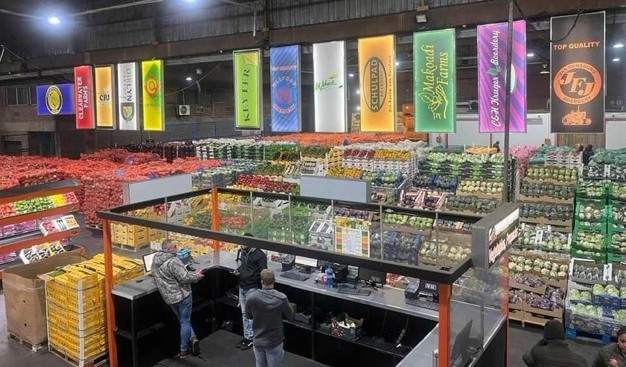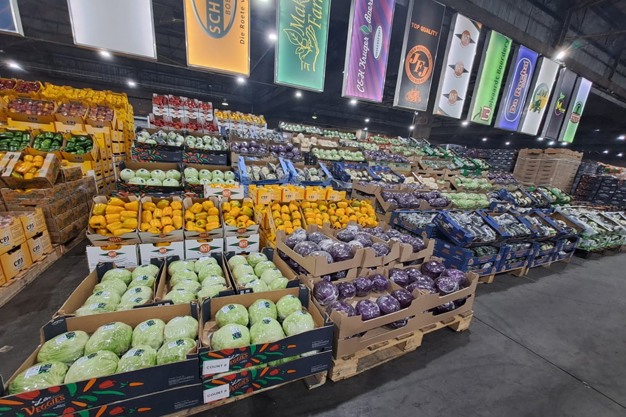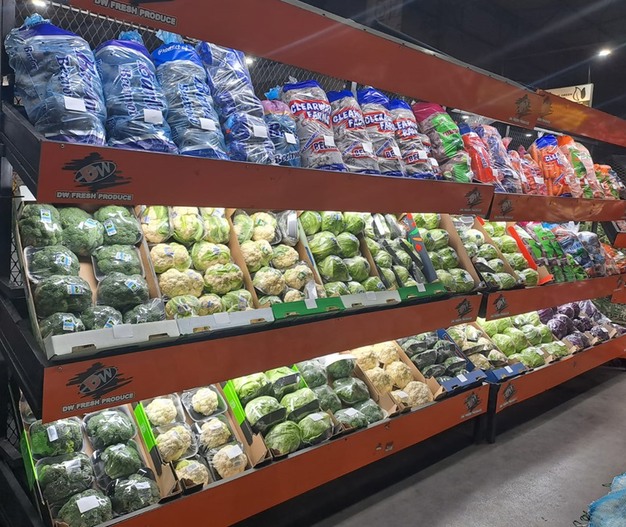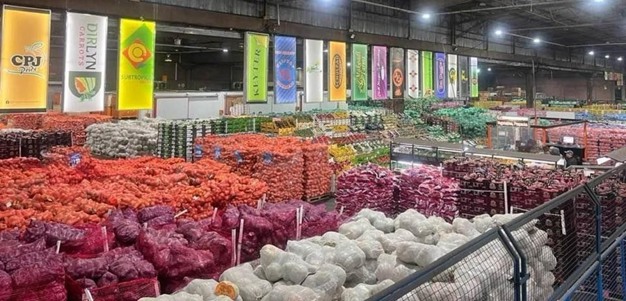André Dippenaar is celebrating his twenty-first year as a fresh produce market agent, during which he has experienced how marketing has had to become ever more clinical. At the DW Fresh agency on the Tshwane market, he manages ten major vegetable lines: carrots, beetroot, all three pumpkin categories (greyskinned or 'ysterpampoene', Hubbard pumpkins and butternuts), sweet potato, brassicas (broccoli and cauliflower), lettuce and the three colours of bell peppers.
The vegetable market is in a period of profound flux. Dippenaar has seen the disappearance of the plethora of small-scale vegetable growers of twenty years ago, a trend in recent years accelerated by South Africa's chronic power cuts, coupled with weather extremes.

Before the trade floor opens, agents start arriving from 02:45 while the market is open 24 hours for deliveries
Nothing is not expensive
"Loadshedding between 7 and 12 in the morning, when it's getting hot and farmers want to irrigate and then again in the afternoon really sets them back and it also disrupts their fertigation programmes. All of the lines that take ninety to a hundred days to maturity are now the problem lines," he says. "The areas that should now have been in production, had severe heat during the late summer, worsened by power cuts."
He says the shortages cut both ways as lower yields meet a populace experiencing economic hardship.
In his experience beetroot and carrots have certainly never cost more: between R10 and R12 (0.6 euro) a kilogram, while the market leaders on broccoli and cauliflower ("every line has its Coca-Cola and its Pepsi," he remarks) can expect R35 (1.7 euros) per packet. "Sweet potatoes had been one of the cheaper lines until now but with the recent heavy rain stalling the harvest in the Brits area their prices are poised to take a jump as well."

Tomatoes are similarly at unprecedented levels. He observes that other lines have in the past periodically obtained higher prices, but not, like now, all at the same time. And again, it leads back to farming in a time of loadshedding. For this very reason – farmers reducing their acreage – potatoes and onions have been unusually expensive for many months, still around R100 (5 euros) for a 10kg bag of either.
"There is an interesting six weeks on the way. Product is scarce and the market is unpredictable - we're seeing very high prices in the middle of the month."

Beetroot and carrot prices are at a high
Dwindling number of vegetable farms
He has witnessed well-known names on the vegetable market falling away as farms struggle, with no government assistance whatsoever.
"Fertiliser prices went up by 300%, although it's dropped back a bit now, while the minimum wage has doubled since 2020. Input costs climb and producers plant less and the supply coming to market grows less. There's just no cash injection into the system."
He adds that it's noticeable that producers simply don't have the huge volumes they had before, while a common winter cash crop like butternuts or pumpkins, are dropped on many potato farms in order to save on input costs.

Vegetables used to be the cheap alternative in South Africa, and while it is still less expensive per kilogram than meat, a line like potatoes clocking record prices is losing market share to carbohydrates like maize meal and rice.
"I'm seeing tough times ahead for the next six months, and over the coming six weeks certainly unpredictability on the market. The key factor to our industry is adaptability. I believe through experience you develop a sense for the market. If you can be a day or two ahead of your competition it benefits your producers, guiding them in tactically supplying the market: when to hold back and when to send." For more information:
For more information:
André Dippenaar
DW Fresh
Tel: +27 12 326 9226
Email: info@dwfresh.co.za
http://dwfresh.co.za/
